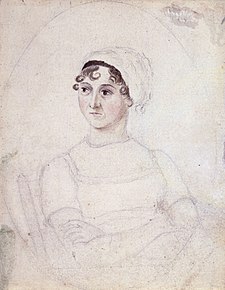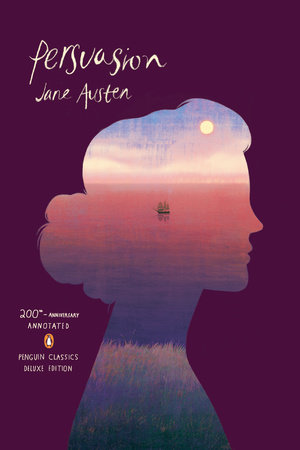by B.K. Stevens
On a rainy night in late
September (and this year, in Virginia, on just about every night in late
September, it rained plenty), I had the pleasure of participating in a
Mystery Writers of America panel at George Mason University's Fall for
the Book festival. The moderator, fellow SleuthSayer Art Taylor, opened
things up by asking us to respond to a time-honored piece of writing
advice: "Write what you know." To what extent, Art asked, did we draw on
our own experiences when we created our characters and stories? How
much did we push beyond the limits of those experiences?

The question came exactly one week before the release of my young adult mystery,
Fighting Chance
(The Poisoned Pencil/Poisoned Pen Press). My protagonist is a
seventeen-year-old male athlete growing up in a small town in Virginia.
I'm a woman, I'm decades past seventeen, I was never an athlete at any
age, and I grew up in Buffalo, New York. If it's smart to write what we
know, I'm in trouble.
The situation made me think back to a guest blog I wrote several years ago for Sleuths' Ink, a writers'
group in Springfield, Missouri. In that blog, I compared the views of
several classic authors who express opinions about whether writers
should stick to writing about what they know. I decided to go back to
that topic in this month's SleuthSayer's post. If two or three people on
the planet still remember my old Sleuth's Ink blog--and that's
undoubtedly a generous estimate--I can assure you this post will be
different. Among other things, two of the authors I'll discuss this time are new.
"Write what you know"--next to "show, don't tell," that's probably the advice fiction
writers hear most often. It can feel painfully limiting. What if you
want to write a war novel, and you've never been to war? You can
research battles and weapons, you can read soldiers' memoirs, but can
you really know how it feels to run forward into a barrage of bullets or hurl a hand grenade at another human being? Can you describe those
moments vividly enough to bring them alive for readers? Or should you
forget the war novel and stick to writing novels about preparing tax
returns, or tempting toddlers to try new vegetables, or doing whatever
else your personal experience has taught you how to do?
Jane Austen stuck to writing what she knew, and she apparently made a
conscious decision to do so. In letters written in 1815 and 1816, James Clarke, the Prince Regent's librarian, urges her to broaden her
horizons. But when he suggests she write about a learned clergyman,
Austen says she lacks the necessary education. When Clarke suggests she
write a historical romance about the royal house of Belgium, her refusal is more emphatic. "I could no more write a romance than an epic poem,"
she says. "I could not sit down to write a serious romance under any
other motive than to save my life." Austen insists she should write only about the people, places, and situations she knows best.: "I must keep
to my own style, and go on in my own way."

Did she think all writers should follow her example? In an 1816 letter to
her nephew Edward, Austen praises his "strong, manly, spirited sketches, full of variety and glow." She contrasts them with her own novels,
which she describes as "the little bit (two inches wide) of ivory on
which I work with so fine a brush, as produces little effect after much
labor." Some writers, Austen seems to imply, are right to attempt works
with greater "variety" than her own.
It's possible, of course, that she didn't really admire her nephew's writing as much as
she claims, and didn't really think so little of her own work. We all
know how unreliable beta readers can be. But it's clear she thought some writers are wise to limit themselves to writing about what they know best.
Edith Wharton, in
The Writing of Fiction,
rejects such limits. "As to experience," she says, "the creative
imagination can make a little go a long way, provided it remains long
enough in the mind and is sufficiently brooded upon. One good
heart-break will furnish the poet with many songs, and the novelist with a considerable number of novels. But they must have hearts that can
break." The crucial thing for writers, according to Wharton, isn't
experience itself. Even if your experiences are limited, your
imagination can help you use what you've experienced as a basis for
writing about what you haven't.

If writers don't need to experience the things they write about, what
do
they need? Wharton sees two things as essential. First, writers must
have emotional depth: "they must have hearts that can break." Could an
emotionally stunted person create characters with powerful feelings,
characters readers will care about? Also, writers must spend time
reflecting about the events and emotions they've experienced, trying to
understand them. Writers may not immediately recognize the significance
in their own experiences. After an experience "remains long enough in
the mind," however, its potential as the basis for fiction may become
clear.
Wharton's words echo Wordsworth's statement that poetry "takes its origin from
emotion recollected in tranquility." Both writers seem to agree that we
should write not when experiences are new and emotions are raw but after some time has passed, after we've had time to think about what what
happened. I'm struck, too, by Wharton's use of the word "brood." It
calls to mind the image of a hen brooding over her eggs, warming them,
nurturing the life within them. If we brood about our experiences, will
we awaken the hidden life they hold? If so, maybe it's the quality of
the brooding that matters most, rather than the experiences themselves.
Maybe brooding is the key to finding a way to, in Wharton's phrase,
"make a little go a long way."
Flannery O'Connor
agrees. In "The Nature and Aim of Fiction," she has nothing good to say
about people who "think they are already writers by virtue of some
experience they've had." "These people," she says, "should be stifled
with all deliberate speed." Not all Senators can write riveting
political thrillers, and not all police detectives can write gripping mysteries.
If you're meant to be a writer, O'Connor
says, you don't need a wide variety of experiences: "The fact is that
anybody who has survived childhood has enough information about life to
last him the rest of his days. If you can't make something out of a
little experience, you probably won't be able to make it out of a lot.
The writer's business is to contemplate experience, not to be merged in
it." Like Wharton, O'Connor emphasizes the importance of contemplating
or brooding upon experience.

Both
Jane Austen and Flannery O'Connor led quiet lives. Neither ever
married. Both died young. Unlike Austen, however, O'Connor sometimes
chose to write about bizarre characters and violent situations that lay
far outside her personal experience. These two authors chose different
paths, but both created enduring works of fiction.
Henry James agrees a good writer can "make something out of a little
experience." In "The Art of Fiction," James describes experience as a
"huge spider-web" that can catch "every air-borne particle in its
tissue." Like a spider web, an imaginative mind "takes to itself the
faintest hints of life." A true writer can convert those hints into
compelling fiction.
To illustrate his point, James
describes an unnamed English novelist who wrote a highly praised tale
about young French Protestants. When, people asked her, had she observed her subjects closely enough to be able to portray them so
realistically? The novelist told James she'd simply passed an open door
in Paris and glimpsed some young French Protestants sitting around a
table. "The glimpse made a picture," James says. "It lasted only a
moment, but that moment was an experience." Writers don't need much
actual experience, not if they have active, fertile minds. The crucial
thing, James says, is to "try to be one of those people on whom nothing is lost!"

"Try to be one of those people on whom nothing is lost"--has better advice
ever been offered to writers? Some people can pass through all sorts of
experiences without gaining significant insights into them, or having
much to say about them. Other people can grasp at "the faintest hints of life" and use them to create characters and situations that go far
beyond their own experiences.
Write what you know?
Sure. But if your talents and interests lead you in other directions,
you can also write what you guess, what you imagine, what you conclude
after careful thought, what you infer from the inevitably limited
opportunities for experience any single human life supplies.
If you want to write a war novel but have never been to war, go ahead. Stephen Crane did that, and
The Red Badge of Courage has given millions of readers insights into what it feels like to be
locked in a battle they can neither control nor understand. Take what
you know of fear, of desperation, of honor, and infuse it into a
situation you've never directly experienced. If you've observed closely
enough, if you've brooded long enough, if you've analyzed deeply enough
and imagined fiercely enough, you might just have something.
(One final note--when this post appears, I'll be at Bouchercon. I'll have
access to my husband's laptop, but I hate laptops. It takes me many
minutes to peck out a single sentence, and I utter many unpleasant words while I'm doing it. I'll try, but I may not do a good job of replying
to comments on Saturday. But I'll reply to every one once I get home on Sunday.)






































